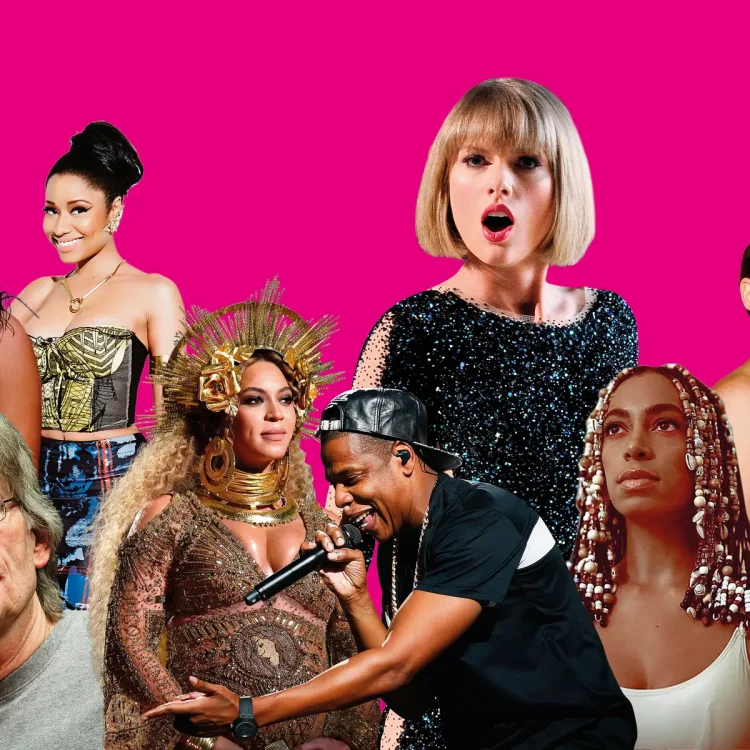“Dispelling the Absurdity: Rihanna’s Unfounded Death Rumor in France”

In the age of instant information dissemination, rumors have the power to spread like wildfire, often causing unnecessary panic and concern. Recently, a particularly absurd rumor has surfaced in France, claiming that the globally acclaimed singer and business mogul Rihanna has met an untimely demise. Despite the lack of credible sources and evidence, this baseless rumor has gained traction in certain circles, prompting a closer examination of the situation to debunk the unfounded claims.
Table of Contents
ToggleThe Birth of the Rumor:
Rumors are often born out of speculation, misinformation, or intentional attempts to deceive. In the case of Rihanna’s alleged death in France, the origins of the rumor remain elusive. Social media platforms and online forums have been flooded with misleading information, leading to a cascade effect that has caused confusion among fans and the public alike.
The Role of Social Media:
Social media platforms serve as a double-edged sword, providing a platform for real-time information sharing but also serving as breeding grounds for misinformation. In this case, the rumor of Rihanna’s death gained momentum on platforms such as Twitter, Instagram, and Facebook, where users shared unverified information without critically assessing its legitimacy. The lack of fact-checking mechanisms on these platforms allows such rumors to spiral out of control before the truth can catch up.
The Impact on Fans and the Public:
Rihanna, an influential figure in the entertainment industry, has a massive global fan base that spans continents. The spread of the death rumor has left many fans in a state of shock and disbelief. The emotional toll on fans who idolize Rihanna cannot be underestimated, as they grapple with the false notion that they have lost an icon they admire.
Furthermore, the rumor has extended beyond Rihanna’s fanbase, causing unnecessary concern among the general public. In times when reliable information is crucial, baseless rumors can divert attention and resources from more pressing matters.
Debunking the Rumor:
A thorough investigation into the origin of the rumor reveals a lack of credible sources and any concrete evidence supporting the claim of Rihanna’s death. The absence of official statements from reliable news outlets, Rihanna’s representatives, or the singer herself should be a clear indicator that the rumor is nothing more than a fabrication.
Additionally, Rihanna’s social media accounts, typically a reliable source for updates on her life and career, continue to be active, with recent posts debunking the false rumors. This highlights the importance of verifying information from official sources before succumbing to the sensationalism that often surrounds celebrity rumors.
The Ramifications of Celebrity Death Hoaxes:
Celebrity death hoaxes are unfortunately not a new phenomenon. In the age of digital communication, spreading false information about a public figure’s death has become disturbingly common. These hoaxes not only cause unnecessary distress to fans and the public but also undermine the credibility of online information sources.
The ease with which rumors can spread online emphasizes the need for media literacy and critical thinking skills. Individuals must be vigilant when consuming information from online sources, especially when it pertains to sensitive topics such as the death of a public figure.
Addressing the Spread of Misinformation:
The unchecked spread of misinformation has become a global concern, prompting calls for increased awareness, education, and accountability. Social media platforms, in particular, bear a responsibility to implement robust fact-checking measures and algorithms to curb the dissemination of false information.
Furthermore, individuals can contribute to the fight against misinformation by verifying information before sharing it, promoting media literacy, and reporting false content on social media platforms. Collaborative efforts between online communities, fact-checking organizations, and tech companies are essential in creating a safer digital environment.
Conclusion:
The rumor surrounding Rihanna’s alleged death in France serves as a stark reminder of the challenges posed by the unchecked spread of misinformation in the digital age. While the singer continues to thrive personally and professionally, the incident highlights the need for individuals to be discerning consumers of online information.
As society grapples with the consequences of rampant misinformation, it is crucial to reinforce the importance of critical thinking, media literacy, and responsible online behavior. By actively engaging in these practices, individuals can contribute to a more informed and resilient society, one where baseless rumors hold no power to disrupt or deceive.
Q1: Is it true that Rihanna died in Los Angeles?
A: No, that is absolutely false. There is no credible information or evidence to support the rumor that Rihanna died in Los Angeles. The rumor is baseless and lacks any official confirmation from reliable sources.
Q2: Where did the rumor originate?
A: The origin of the rumor remains unclear, as it surfaced on social media platforms without any verifiable source. Rumors of this nature often gain traction through online speculation, misinformation, or intentional attempts to deceive.
Q3: Have there been any official statements regarding Rihanna’s alleged death?
A: No official statements from reliable news outlets, Rihanna’s representatives, or the singer herself have confirmed or acknowledged the rumor. Rihanna’s social media accounts, which are typically reliable for updates, continue to be active, dispelling the false claims.
Q4: How did the rumor spread on social media?
A: Social media platforms, including Twitter, Instagram, and Facebook, played a significant role in the rapid spread of the rumor. Users shared the unverified information without proper fact-checking, leading to a cascade effect and causing confusion among fans.
Q5: What impact has the rumor had on Rihanna’s fans and the public?
A: The rumor has left many fans in a state of shock and disbelief, causing unnecessary emotional distress. Beyond Rihanna’s fanbase, the false information has generated concern among the general public. The emotional toll and diversion of attention from more pressing matters underscore the negative consequences of celebrity death hoaxes.
Q6: How can individuals verify information to avoid falling for such rumors?
A: It is essential to verify information from credible and official sources before believing or sharing it. Official statements from news outlets, representatives, or the individuals involved should be sought. Media literacy and critical thinking skills are crucial in discerning between accurate information and baseless rumors.
Q7: What can be done to combat the spread of misinformation?
A: Individuals can contribute to combating misinformation by fact-checking information before sharing it, promoting media literacy, and reporting false content on social media platforms. Additionally, social media companies should implement robust fact-checking measures and algorithms to prevent the unchecked dissemination of false information.
Q8: How common are celebrity death hoaxes, and what are their ramifications?
A: Celebrity death hoaxes are unfortunately not uncommon in the digital age. They cause distress to fans, undermine the credibility of online information, and divert attention from more critical issues. The prevalence of these hoaxes emphasizes the need for increased awareness, education, and accountability in combating the spread of misinformation.





